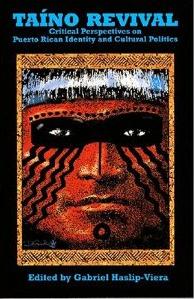
This simulating and timely collection examines the Taíno revival movement, a grassroots conglomeration of Puerto Ricans and other Latinos who promote or have adopted the culture and pedigree of the pre-Columbian Taíno Indian population of Puerto Rico and the western Caribbean.
The Taínos became a symbol of Puerto Rican identity at the end of the nineteenth century, when local governments and nationalistic intellectuals began to appropriate the Taínos for the conception of a socially and racially balanced Puerto Rican society. Activists in the Puerto Rican diaspora revitalized this idea.
Modern critics now claim that the Taíno heritage has been canonized through state-sponsored institutions, such as festivals, museums, and textbooks, at the expense of blacks. In the past, officials, alarmed at the black majorities on the other Caribbean Islands, tried to “whiten” Puerto Rican society by calling all people of color Taínos. Others complain that the Taíno revival lost its fervor, evolving from an anti-colonialist movement to a mere fashionable trend. Still, the Taíno heritage remains a central part of Puerto Rican identity in the twenty-first century.
